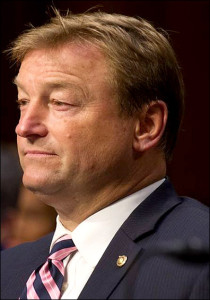By Jim Ellis
May 8, 2017 — Arizona US Rep. Kyrsten Sinema (D-Phoenix) announced at the end of last week in a Phoenix radio interview her intention to seek re-election next year, meaning she will not become a US Senate candidate.
Most observers believed she would be the strongest Democrat to oppose first-term Sen. Jeff Flake (R), and her robust first-quarter fundraising activity seemed to suggest she had something in mind beyond simply securing what was once a politically marginal district.
In the quarter, Rep. Sinema raised just short of $678,000, and holds a whopping $2.8 million cash-on-hand. This latter number is one million dollars more than even Sen. Flake’s reported total. The senator was more aggressive in the first quarter, however, raising $1.3 million in 2017’s opening months, but began with less in his campaign account.
Sinema backing away from a Senate challenge doesn’t mean Sen. Flake is home free, however. His intra-party battle scars from a national feud with then-candidate and later Republican nominee Donald Trump have not fully healed, so the senator harbors some GOP primary vulnerability at the very least. And, a wounded incumbent moving into the general election from a state with the capability of electing someone from the other party is not a scenario the national Republican Party leadership wants to see.
Currently, the senator’s announced primary opposition — former state Sen. Kelli Ward, who held veteran Sen. John McCain to a 51.2 – 39.9 percent Republican primary win in 2016 — has little in the way of assets with which to oppose Flake. According to her 1st quarter financial disclosure report, Ward raised $168,369 and has just under $104,000 in her campaign account.

Dr. Randall Friese (above) could prove to be a formidable opponent should he decide to run against first-term Sen. Jeff Flake (R).
Still, Sen. Flake’s electoral obstacles would not be in his rear-view mirror even if he only faces Ward in the primary and easily defeats her. With Rep. Sinema now out of the Senate race, a name moving up the Democratic potential candidate chart is state representative and doctor Randall Friese (D-Tucson), the surgeon who operated on former Rep. Gabrielle Giffords (D-Tucson) and saved her life from what easily could have been a mortal gunshot wound.
Several years after the Giffords surgery, Dr. Friese (left) decided to enter politics and was elected to the state House of Representatives in 2014, and then re-elected last November. He is now the body’s assistant minority leader. In addition to being an active trauma surgeon, the doctor is a professor of surgery at the University of Arizona College of Medicine.

